The views expressed in our content reflect individual perspectives and do not represent the authoritative views of the Baha'i Faith.
In the spring of 2000 I stood before a magistrate judge in the municipal court of Decatur, Georgia, my palms sweating nervously as I shifted from side to side on restless feet.
My apprehension was illogical. I had done nothing wrong, but any interaction with the judicial system, however banal in appearance, becomes a complicated emotional process for black folk accustomed to a perception of guilt before innocence.
I had come to this neo-classical building, constructed in 1898, just thirty-three years after the Civil War, not for any infraction of the law, but rather, to petition the court for a legal name change.
I had taken a long and circuitous road to this moment. My meandering path began with the English writer Hugh Thomas’s book The Slave Trade, where I discovered on page 295 that my inherited American surname, Bolds, originally derived from a Liverpool slave trader named James Bold.
The agitation I felt at that discovery didn’t completely surprise me. I knew that among the many things the slave system divested African Americans of was our names – a systemic, diabolical and wickedly ineffective process meant to break the human spirit. So reclaiming my right to name myself became an act of self determination – a way of wrenching my identity from a brutal history neither I nor my ancestors had not chosen, and discarding a moniker that felt like an offense to my spirit.
My decision didn’t make me unique. I knew I walked in the well-worn footsteps of people like the civil rights activist Malcolm X; champion boxer and global ambassador Muhammad Ali; and poet Ntozake Shange. I felt, as they must have, that an integral part of a sense of self was bound to one’s name, an indicator of personhood, place, and cultural memory.
For some, though, this fascination with the past, so prevalent among African Americans, may seem like a waste of misdirected energy. “Get over it,” or “That happened so long ago,” they say. “We are all one human family anyway. That stuff doesn’t matter anymore.”
On the surface, such dismissive summations appear to suggest effective coping mechanisms, simple and efficient. But are they?
In the long and treacherous journey from the interior of Africa to the coast – across the Middle Passage and onto the cotton, rice, tobacco, sugar, and indigo fields of North America – physical freedom wasn’t the only casualty. Slavery imposed the arresting of names; the suppression of language; the seizure of the drum. All of those violations constituted a gutting of identity – a cracking of the vessel of memory. From the countless shards and skeletons scattered across the vast seabed of the Atlantic, African Americans had to piece together a new reality – a new sense of self in a strange and distant land.
The Baha’i writings view such enslavement as a crime against humanity, and have forbidden it since the earliest days of the Faith in the mid-19th century:
It is forbidden you to trade in slaves, be they men or women. It is not for him who is himself a servant to buy another of God’s servants, and this hath been prohibited in His Holy Tablet. Thus, by His mercy, hath the commandment been recorded by the Pen of justice. Let no man exalt himself above another; all are but bondslaves before the Lord, and all exemplify the truth that there is none other God but Him. He, verily, is the All-Wise, Whose wisdom encompasseth all things. – Baha’u’llah, The Most Holy Book, p. 45.
The Baha’i teachings also ask us all to preserve each person’s cultural identity:
Baha’is should obviously be encouraged to preserve their inherited cultural identities, as long as the activities involved do not contravene the principles of the Faith. The perpetuation of such cultural characteristics is an expression of unity in diversity. – The Universal House of Justice, Traditional Practices in Africa, 16 December 1998.
This retention of distinct cultural expression creates a key component of the Baha’i concept of unity in diversity, the hallmark of a newly emerging global civilization. But for the descendants of the enslaved Africans, this loving encouragement presents some daunting challenges. For us, a question lingers and haunts the imagination: “Who were we before we passed through the door of no return?”
For most of us, that question has no apparent answer. It is like standing in front of a locked cabinet which you know contains a valuable family heirloom, but you have no key to open it. So its contents remain a mystery to you – and in some sense, you remain a mystery to yourself.
Reckoning with this reality can be frustrating, heart-breaking, and debilitating, particularly when encountering others who have a deep awareness of their ancestral roots. We can mitigate part of that sense of emptiness with the knowledge that in spite of our collective displacement, African Americans have crafted a unique cultural expression that has influenced the world, a miraculous and ingenious feat of sustained creative brilliance. But the questions, implacable and insistent, remain.
The Baha’i teachings say that humanity’s primary identity is spiritual, that at the core of our being, beneath the other defining outward characteristics that make us who we are, the soul comprises the essential reality of human creation – an eternal sign of the limitless will of the omnipotent God. This powerful and evocative truth transcends place and time. It expresses no fealty to class or culture; color, political creed or manifesto. The soul, it seems, is exalted above these lesser realities:
Know, verily, that the soul is a sign of God, a heavenly gem whose reality the most learned of men hath failed to grasp, and whose mystery no mind, however acute, can ever hope to unravel. – Baha’u’llah, Gleanings from the Writings of Baha’u’llah, pp. 158-159.
As for the spiritual perfections they are man’s birthright and belong to him alone of all creation. Man is, in reality, a spiritual being, and only when he lives in the spirit is he truly happy. – Abdu’l-Baha, Paris Talks, p. 74.
These passages require reflection and mindfulness. It would violate the letter and the spirit of the Baha’i Faith to acquire a dismissive attitude about the significance of culture as the cornerstone of a worldwide community based on diversity. The reality of our primary human identity being a spiritual one, and our secondary identity being cultural and familial, are not mutually exclusive, but interdependent.
The ascendant spirit and its prescience give life to the other dimensions of human existence. Culture means nothing without the spirit of the people to animate it. In fact, all noble iterations of cultural expression come from the spirit. The development of idiomatic ways of being define our place in the world.
We do this on an individual level, and we do it collectively. This contextual framework shapes how we see ourselves and how we are seen.
One way of perceiving the interrelationship between the secondary and the primary identity is to imagine two circles, one smaller, existing within the borders of a larger one. All those within the smaller circle share a common set of practices and perspectives that bind them together, and give them cohesive cultural strength. But the larger circle possesses the greater capacity for inclusion, and can accommodate the complexity of cultural diversity through the unifying force of spirit. The larger circle makes the stranger a friend, envelops the scorned and embraces the dispossessed. So, even as we rightfully encourage one another to seek out and cherish the various artistic, linguistic, gastronomic, and spiritual literacies that comprise our culture or cultures of origin, let us never forget that the universal reality of the soul makes us all one tribe:
The holy Manifestations of God were sent down to make visible the oneness of humanity. For this did They endure unnumbered ills and tribulations, that a community from amongst mankind’s divergent peoples could gather within the shadow of the Word of God and live as one, and could, with delight and grace, demonstrate on earth the unity of humankind. – Abdu’l-Baha, Selections from the Writings of Abdu’l-Baha, p. 278.
I may never fully know the ways of my ancestors. I may never walk on the same soil as they once did. I may never understand the many languages uttered in the dark, swollen belly of the slave ship, or hear the dirge of the Fulani; the Igbo; the Wolof; the Bakonga or the Mande. The rise of DNA testing has become a source of hope to millions of African Americans who wish to know their history beyond the auction block – a way of unlocking the cabinet of cultural memory. Whatever those results yield, whether we are ancestrally Akon, Yoruba, Makua or any of the other 45 distinct ethnic groups represented in the trans Atlantic trade, we have always had a place within that larger reality, within that larger circle where all humanity descends from the same source and emanates from the same point of adoration:
… fleecy locks and black complexion cannot forfeit nature’s claim; skin may differ but affection dwells in black and white the same. Were I so tall as to reach the pole or to grasp the ocean and the sand. I must be measured by my soul; the mind is a standard of the man. – Martin Luther King Jr.
You May Also Like
Comments



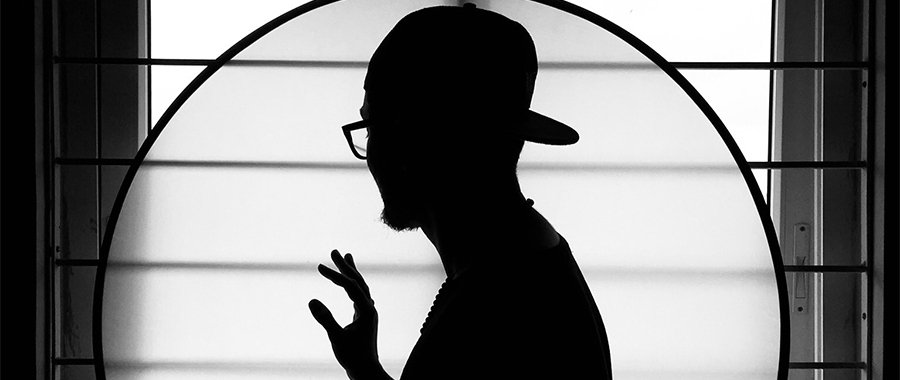



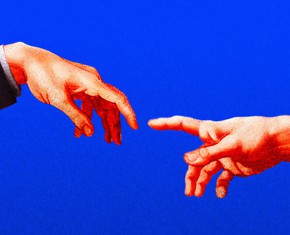





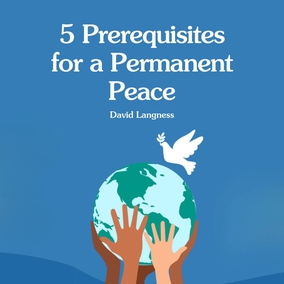
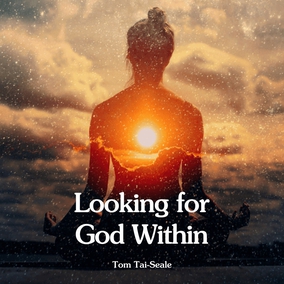
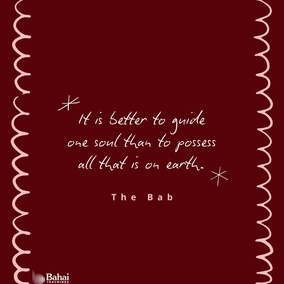
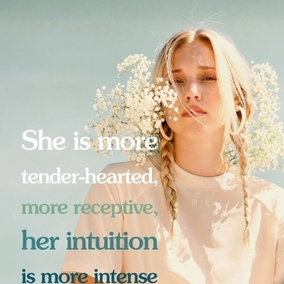

out of this transient heap of
dust and riseth into the world
of God, then veils will fall away,
and verities will come to light,
and all things unknown before
will be made clear, and hidden
truths be understood."
Selections from the Writings
of Abdu'l-Baha
p. 177
„Out of the huts of history's shame
I rise
Up from a past that's rooted in pain
I rise
I'm a black ocean, leaping and wide,
Welling and swelling I bear in the tide.
Leaving behind nights of terror and fear
I rise
Into a daybreak that's wondrously clear
I rise
Bringing the gifts that my ancestors gave,
I am the dream and the hope of the slave.
I rise
I rise
I ...rise.“
— Maya Angelou